Let’s face it. The decade spanning the mid-1970s to the mid-1980s was a miserable time for anyone passionate about high-performance cars. Vehicle weights were constantly climbing while horsepower figures fell off a cliff. There seemed little respite, but Chevrolet accepted the challenge to inject some excitement into its lackluster Vega range. It teamed with Cosworth to produce a limited-edition model that proved more limited than intended. The Vega Cosworth shined bright for two years, but the sticker price meant that Chevrolet never came close to achieving its aim of selling 5,000 cars. The total fell 30% short of the mark, but a vehicle that was unloved when it was new has developed a strong following today. This is especially true for cars with a known history, and this 1975 example ticks that box. It has been part of the same family since Day One, but the time has come for it to find a new home. Therefore, the seller has listed it here on Craigslist in Dryden, New York. They set their price at $21,500, and I must say a big thank you to Barn Finder Pat L. for spotting this wonderful classic.
It is fair to say that American manufacturers were caught flat-footed by subcompact imports produced by foreign manufacturers during the 1960s and early 1970s. These cars demonstrated excellent engineering principles, impressive build quality, and fuel efficiency. Detroit struggled with these concepts, although domestic manufacturers eventually succeeded in those areas. However, their initial attempts were less than impressive. The early Pinto demonstrated the ability to imitate a barbeque at the slightest provocation, while the Vega was plagued with many shortcomings. One of the worst was rust, which was of almost Alfa-esque proportions. Chevrolet developed improvements to address the issues, but the Vega’s reputation was forever tarnished by what was seen as cost-cutting measures by the company. This Cosworth has avoided those dramas and has been part of the same family since it rolled off the showroom floor. Its Black paint shines impressively, with no evidence of flaws or defects. I believe it may have received a repaint because it lacks the distinctive Gold pinstripes and Cosworth decals. The panels are laser straight, and the seller’s claim that it has been garage-kept its entire life makes its rust-free status unsurprising. It never ventures out in the rain and spends its winters securely parked away from inclement weather. The foglights are a later addition, but removing them would be easy for a buyer seeking a more “factory” appearance. The original and distinctive alloy wheels look spotless, and I can’t identify any trim or glass issues.
The Vega’s tale of woes didn’t end with its rust issues because its 140ci four was plagued with problems that further undermined the badge’s reputation. Chevrolet worked to address those shortcomings but also recognized it needed a “halo” model to inject excitement into the range. It collaborated with Cosworth to develop a unique powerplant beyond anything fitted to an American subcompact to that point. The all-alloy 1,994cc four featured a 16-valve DOHC cylinder head designed by Cosworth, Bendix electronic fuel injection, and stainless steel exhaust headers. Chevrolet, stung by criticism of the Vega and its declining reputation, threw everything at this engine. Each was hand-assembled in a clean room before being inspected and installed into the recipient vehicle. Power and torque figures were modest by modern standards, but 110hp and 107 ft/lbs of torque were considered respectable at the time. A regular Vega GT would struggle to cover the ¼-mile in 19 seconds, but the Csworth completed the journey in 18 seconds. However, the high-revving nature of these engines meant they didn’t show at their best on the drag strip. If the GT driver kept the pedal to the metal, his car would hit a metaphorical wall at 99mph. The Cosworth showed it a clean set of heals by hitting 113mph. The seller has been this classic’s custodian for twenty-three years, and it has been part of their family since it rolled off the showroom floor. It is in excellent mechanical health, running and driving perfectly. The new owner receives a collection of spares that include an ECU and belts, Shop Manuals, and the original Window Sticker.
It is a brave person who orders any car with White upholstery and trim because yellowing and stains seem almost inevitable. That isn’t the case with this Vega, and while I wouldn’t describe the condition as showroom-fresh, it is good enough to attract favorable comments at a show or a Cars & Coffee. The seats show some slight stretching, but that is the extent of my criticisms. There are no rips, tears, or signs of abuse. The dash is spotless, with the unique gold machine-turned fascia looking perfect. The carpet hasn’t worn or faded, there is no crumbling plastic, the factory AM radio is intact, and there are no signs of aftermarket additions.
Chevrolet planned to sell 5,000 examples of the Vega Cosworth during its two-year production cycle, but only 3,508 buyers were persuaded to hand over their cash. The greatest challenge facing the Cosworth was its price, which came perilously close to the iconic Corvette. The company produced enough engines for the production run, but when the ax fell, they retained a few complete engines, dismantled 500 for the spare parts inventory, and scrapped the rest. Many of these cars led hard lives, and those that weren’t driven to death often succumbed to devastating rust problems. This Vega has avoided that fate and is one of the nicest we’ve seen at Barn Finds. After decades spent largely unloved, a new generation of enthusiasts has embraced these cars, pushing values up substantially. The seller’s price on this Vega is realistic in the current market, and I believe they won’t have much trouble finding a new owner. Could that person be you?
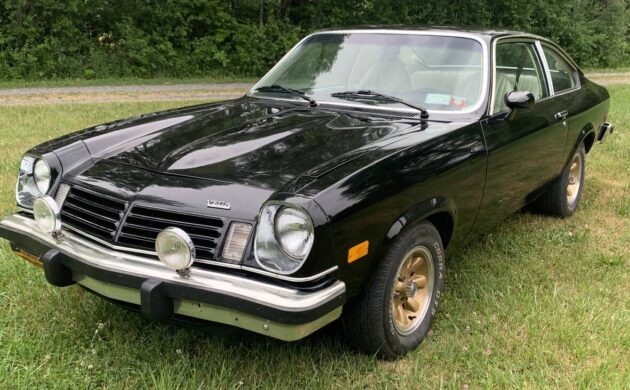
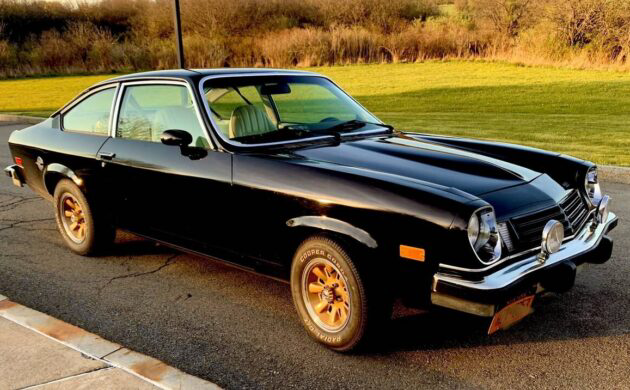
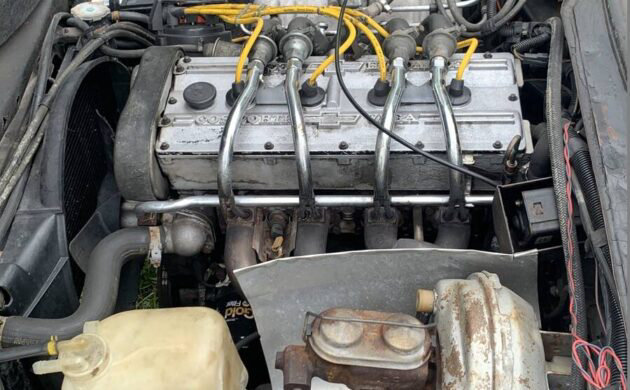
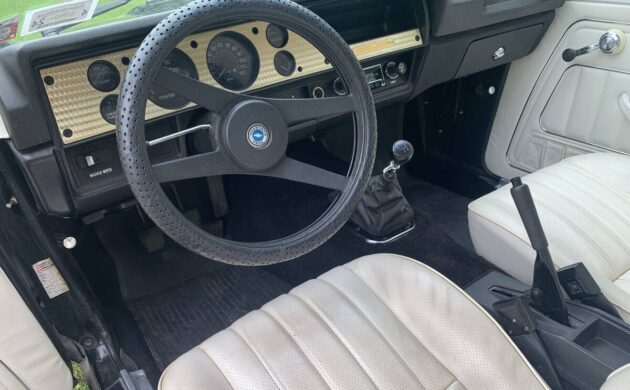
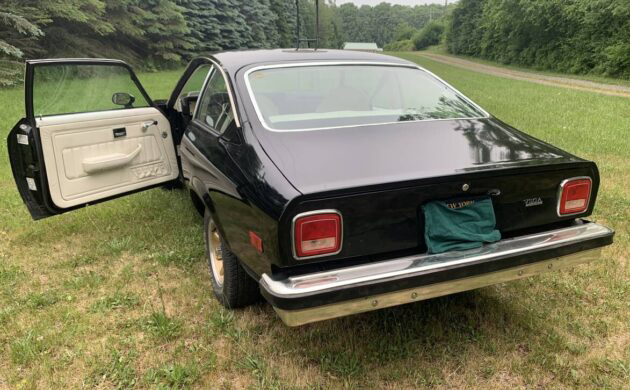




A lot of people held on to the Cosworth cars. Even back when I was in high school I remember seeing these advertised on Hemings as a collector car. Too bad emissions choked a good idea and hampered John DeLoreans efforts to restore the image if the Vega. My friend purchased one new when he worked the the Chevy dealer. This has come up in conversation several times and I never heard him say anything good or bad about the car. This reinforces my thoughts and feelings that this car would be a Meh on the ownership scale.
A Vega I would like would be the early bumper coupe or wagon with a Buick or Olds 215 V8 and a 5-speed. That should have been the Vega halo car but tooling for the engine was long gone by then.
Good point, Alphasud. And in typical fashion of the manufacturers of the time, the solution, the Monza V8, was too little too late. Too bad, especially in light of Rovers ability to get more than 185 hp from the former GM 215ci. Somewhere I heard GM try to buy it back but were told by Rover “No, but we’ll sell you all the engines you want to buy..”
It’s a sleeper! So instead of 0 to 60 in 14.5 seconds, you’ll blow them into the weeds with your 10.5 second time!
My brother had one and it was definitely Meh. My base 4 spd Rabbit handled better and was more fun to drive
Hmmm, I wonder how much more could be wrung outa that cosworth?
Headlight buckets would have originally been black. I wonder why they were changed? It’s also missing its stripes and decals.
Seems like a lot of these Cosworths were preserved. Indeed, it’s much more rare to see a regular Vega than a Cosworth today, even though only a fraction of Vegas were Cosworths.
While most Cossies had black painted headlight buckets, unpainted chrome buckets were common on non-black painted cars such as burgundy or white. During the transition mid production it became a parts bin grab as the new grill /headlights were all new.
With a name like yours, I am loath to argue any Vega facts with you, LOL!! I’ve seen many Cossies and I’ve never seen one with chrome headlight buckets, in any color. But stranger things have happened I suppose.
Because of the missing stripes/decals, if not for the wheels, this would at first appear to be just a plain ordinary Vega. No mention of a repaint, though?
Umm yeah at that price… HARD pass. For less you can get something way way … yes three.. way better ride
These could have been great. They weren’t, and aren’t…but could have been.
They cost almost the same as a vette and were dogs. Even though it’s in nice condition I’m thinking 10k range
I had a vega wagon (76) that wasn’t a cosworth but cool in its own cause of the delivery sides instead of windows, so it had a back hatch window with tailgate drivers and pass. window and of course windshield. Had plans to sbc it, come home one day and my dad had taken it to the junkyard. It was one of the lucky no rust issues also. Just saying would love to have that one back.
Before anyone cracks wise about flammable Pintos, read this. The truth isn’t that Pintos weren’t more dangerous than other cars in its class. It’s that the car ignored safety fixes that could have made it safer than it was but for cost cutting…
https://www.tortmuseum.org/ford-pinto/#:~:text=In%201978%2C%20following%20a%20damning,Bobcats%2C%20for%20fuel%20system%20modification.
There you go again, picking on the poor Pinto. They were no more or less liable to catch fire than any other car with a rear mounted gas tank, some GM’s included. There only fault was there was no firewall above the tank, so flames would spread to the interior. In a VW beetle you sat with the gas tank above your feet! They didn’t blow up in a front collision any more often than Pintos with the rear mounted tank.
Now on to the Cosworth Vega, overpriced toys. GM would have been better off to have put the Buick 231 V6 in the Vega like they did the Monza and its GM cousins. The Cosworth was a complicated engine the average public wanted no part of. And a lot of the buyers were sorely disappointed as well. I know a guy who got one for high school graduation, he drove it a year or so, then parked it in a building and bought a driver car. He gets it out of the building about once a year, cleans it up, and puts maybe 50 miles on it then back in the building it goes. He won’t sell it, holding on until it’s worth what he thinks it is. He always overprices his stuff, so I figure he’ll hang onto it a while.
Agreed, although that GM Iron Duke was pretty heavy and would change the handling of the Vega, requiring significant suspension work, negating the effort. The 4 Cylinder Toyota 22R or Alfa GTV SPICA would be an easier conversion. It’s really embarrassing that period for GM. And heck all USA companies. Dodge Omni, total Lemon. Chevy Citation and Blazer on that new platform, both lemons AFTER the Vega debacle. If it all happened at the same time, maybe you give GM a hall pass, but they were failing all over the place. DeLoren was said to have been ‘seeding the market’ so buyers would want his snowmobiles (make GM cars unreliable to give his operation already ramping up disgruntled GM buyers). Either way, it was overall a really bad period for American car manufacturers.
So … the only issue with the Pinto was flames in the interior … okay. Gotcha. No biggie. I drove my dear mother’s 75 Pinto. It was a turd brown automatic to add insult to injury. It used to slow down if you floored it. And would simply stall periodically at highway speeds … other than that, no complaints. Other than the flames in the interior.
I’m 1978 while a Junior in HS I drove a Vega wagon for an auto parts store I worked at in Pittsburgh PA. I had to drive that little wagon with my foot to the floor to get up the hills. It was a dog but does bring back good memories. My daily driver was a 67 Coronet R/T which I dropped $500 for. That car was fast and fun.
1970’s Euro and Japanese cars were not only interesting but many were fantastic. Perhaps the writer meant to say “US made cars were terrible”? In the 1980’s, I bought a herd of 70’s cars. Alfa GTV SPICA, all around disc brakes and 140hp moving 2100 pounds of fun around. VW Scirocco. Opel Manta fuel injection (Bosch; not fast, but fun and good gas mileage). BMW Bavaria, which was lighter than the coupe and had better manual transmission gear ratios. Yes, the standard Vega engine was terrible. But already by the 80’s, engine swaps were giving it a new round of fans. Definitely would have been better to do swaps with Alfa 2.0 motors, which would give slightly better performance than the Cosworth, better gas mileage, and no serious mods to suspension. Vega’s rusted out because their warped blocks and heads leaking oil like gushers got them parked on grass and dirt, until their owners stopped driving them, leaving them idle on the damp grass and dirt. It was actually a decent chassis and suspension. A few Cosworth Vega’s in Texas I heard mechanics talk about said routine valve adjustments and carb issues made them the wrong car for most buyers, who tended not to be very mechanical. It was offered with nicer color / interior combinations, wheels etc so it was someone who wanted to have an American sports car for image and gas mileage, but who didn’t work on them themselves. Thus, they also suffered neglect until about 10-20 years later they became a collector car. Similar to the English drivetrain Ford Capri. But because compared to German, French, Japanese and Italian sports GT cars having so many better dynamics going for them, and so many Americans preferring giant V8 gas hog ‘muscle cars’, the Vega’s rusting out got passed over, in my observation, except by V8 engine swappers. Shame really. Whoever decided to rush that sleeved aluminum block Vega motor without real world testing, low tolerances etc killed the Vega. Brand new it was actually pretty decent overall. Not fast, but a nice basic ride. Had it been reliable and not dripping oil down the road, US car history would be very different.
The Vega engine did not have sleeves. It was aluminum with silicon that provided a “lubricated” surface for the pistons. A bigger problem was the bocks open deck. The cast iron head was supposed to provide the strength. It didn’t work.
The big problem with the Cosworth version was the moving target of emissions. The emissions controls, I’ve been told, are easy to disconnect, and reconnect for emissions testing, and when free breathing, it made power like a Cosworth engine would be expected.
And rust? Everything rusted them. Remember Ziebart? Rusty Jones?
Edit: Everything rusted then, not them. Vegas were notorious for rust, but within two or three years, if you were in a salt-happy area like northern Illinois, anything could go. Rust preventative was mandatory. Those little yellow Ziebart plugs were worth the cost.